Contents
Guide
Pagebreaks of the print version
PROPOSING PROSPERITY?
PROPOSING PROSPERITY?
Marriage Education Policy and Inequality in America
Jennifer M. Randles
Columbia University Press  New York
New York
Columbia University Press
Publishers Since 1893
New York Chichester, West Sussex
cup.columbia.edu
Copyright 2017 Columbia University Press
All rights reserved
E-ISBN 978-0-231-54317-0
Library of Congress Cataloging-in-Publication Data
Names: Randles, Jennifer M., author.
Title: Proposing prosperity? : marriage education policy and inequality in America / Jennifer M. Randles.
Description: New York : Columbia University Press, [2017] | Includes bibliographical references and index.
Identifiers: LCCN 2016014662 | ISBN 9780231170307 (cloth : alk. paper)
Subjects: LCSH: Family life educationUnited States. | MarriageUnited States. | Family policyUnited States. | Poor familiesServices forUnited States. | EqualityUnited States.
Classification: LCC HQ10.5.U6 R36 2016 | DDC 372.37/40973dc23
LC record available at https://lccn.loc.gov/2016014662
A Columbia University Press E-book.
CUP would be pleased to hear about your reading experience with this e-book at .
Cover design: Rebecca Lown
To Craig,
from whom I have learned the most about love.
Contents
Just as it takes a village to raise a child, it takes a special kind of villagementors, colleagues, editors, friends, and familyto write a book. As one member of that village, my dear mentor Arlie Russell Hochschild, once wisely advised me: Create a cocoon of people who will support you and the research you want to do, and dont worry about the rest. Alas, I often did worry about the rest. When I did, those I name in the paragraphs that follow were there to support me unconditionally. They are my village, one for which I am deeply grateful.
First, I would like to thank the marriage educators who allowed me to study the classes that are the empirical focus of this book. Your work and commitment have made a significant difference for many couples and families. I, for one, am a better partner and parent for having taken relationship skills classes. Though my analysis in what follows is often critical of these classes, please know that I strove to provide a balanced perspective of what the programs have to offer and how they might better support those who partner and parent under much less privileged circumstances than my own. Special appreciation goes to the woman I call Cynthia for her willingness to let a graduate student critically investigate a program that was her professional and personal calling and for her constant openness to ideas for making the program more useful for low-income parents.
Next, I would like to acknowledge the significant financial and institutional support I received throughout the duration of this project. This research was generously funded by the National Science Foundation (grant no. 0903069) and the following programs of the University of CaliforniaBerkeley: the Institute for the Study of Societal Issues; the Center for Child and Youth Policy; the Department of Sociology; the Graduate Division; and the Institute for Governmental Studies. A publication grant from the American Association of University Women and scholarly activities grants from the College of Social Sciences at California State UniversityFresno were vital for carving out the writing time I needed to finish and edit the manuscript.
This book benefited early on from the guidance of mentors who taught me how to think with a sociological imagination and how the personal and political intersect in the most intimate aspects of lived experience. I am especially grateful to Barrie Thorne for agreeing to advise this project even before she knew me. She cared about my personal well-being as much as she cared about the progress of my dissertation, recognizing that the two are intricately connected. Barries encouragement to focus on the juice of the project renewed and enlivened my commitment to this research when I needed it most. Sandra Smith and Cybelle Fox always encouraged me to find the larger sociological hook in the empirical story. Their attention to my professional development is inspiring, and I strive to model it now for my own students. Carolyn Pape Cowan and Phil Cowans decades of research on couples groups and vast knowledge of relationship strengthening programs have been an invaluable source of guidance. They, in particular, encouraged me to be balanced in my analysis. I am confident that publicly funded relationship programs will increasingly meet the needs of disadvantaged families because Phil and Carolyn are steadfastly committed to that goal. To Deborah Freedman Lustig, David Minkus, and Christine Trost of the UCBerkeley Institute for the Study of Societal Issues, thank you for the always constructive feedback and for supporting research focused on equality and social change.
Many colleagues read chapter drafts and provided insight that allowed me to better say what I really wanted to in this book. To Jennifer Jones and Leslie Wang, I cannot imagine a better writing group for the formative stages of this project. For reading chapter drafts as the book was taking shape, I am grateful to Orit Avishai, Lynne Gerber, Daisy Rooks, Jennifer Sherman, Jennifer Utrata, Leslie Wang, and Kerry Woodward. To my coauthors of manuscripts related to this projectOrit Avishai, Lynne Gerber, Melanie Heath, and Kerry Woodwardthank you for showing me the value of true collaboration. A special note of appreciation goes to Orit Avishai, my marriage education sounding board and the person with whom I wish I could write everything. Thank you all for being supportive colleagues and collaborators, ones I am privileged to also call friends.
To the amazing editorial team at Columbia University Press, thank you for improving the manuscript in numerous ways. To Jennifer Perillo, you saw the value in this project from the very beginning and advocated for it to the very end. Thank you for working so diligently to maintain my vision of the project. Your support has been invaluable. To Stephen Wesley, thank you for overseeing countless tasks related to the book throughout the production process. To the anonymous reviewers, I am grateful for the careful attention to the manuscript and the truly constructive feedback and insightful critiques. Addressing them, I hope, allowed for a more balanced treatment of the books subject matter.
To Bennie and Bridget Randles, your love and support have sustained me in so many ways throughout the long duration of this project. You taught me what cannot be learned from bookshow to be compassionate, inquisitive, and concerned for the well-being of others. To my grandparents, James and Patsy Clement, thank you for the inspiring example of your almost seventy-year partnership and for agreeing to be interviewed for . I cherish daily memories of the late Buddy and Dorothy Randles. To Christine Bailey and Bill Becker, you are more than in-laws; you have become my second set of parents and the family that allows me to feel as though I am never far from home.
To Craig Bailey, everything I learned from this project about what sustains a strong relationship points to you. An expert active listener and ever empathic, you are my model of being relationally skilled. Most importantly, you epitomize equality in every word and action. I cannot fully articulate how much your love and support have meant, so Ill just say that Craig is, indeed, awesome, and that Ill always be grateful for serendipity. To Bridget Christine Randles Bailey, finishing this book coincided with the first year of your life, and the timing could not have been better. May you grow to have a sociological imagination and never forget the privileges you have, just as I promise to never lose sight of the privilege it is to be your mother.




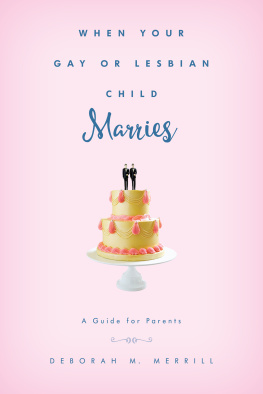
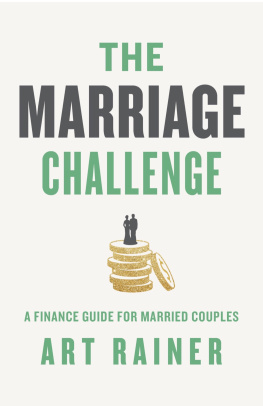
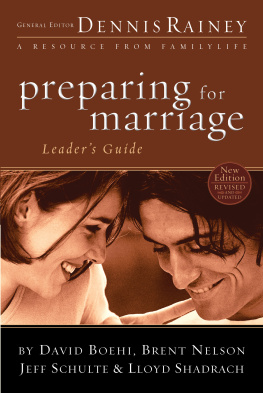

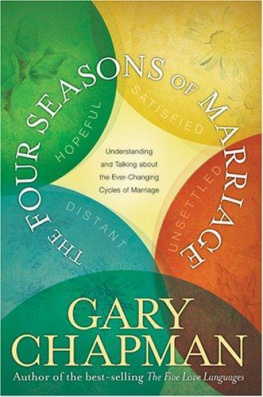
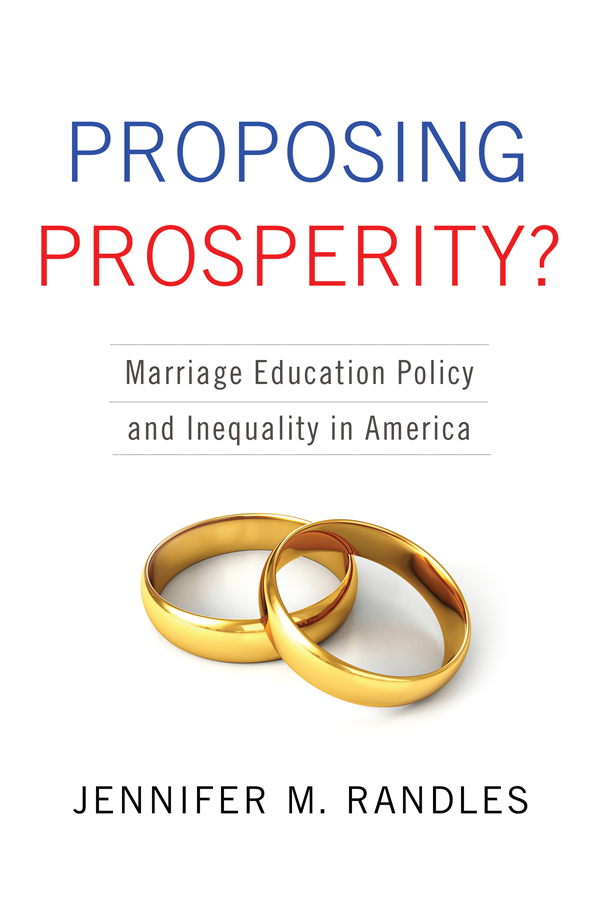
 New York
New York